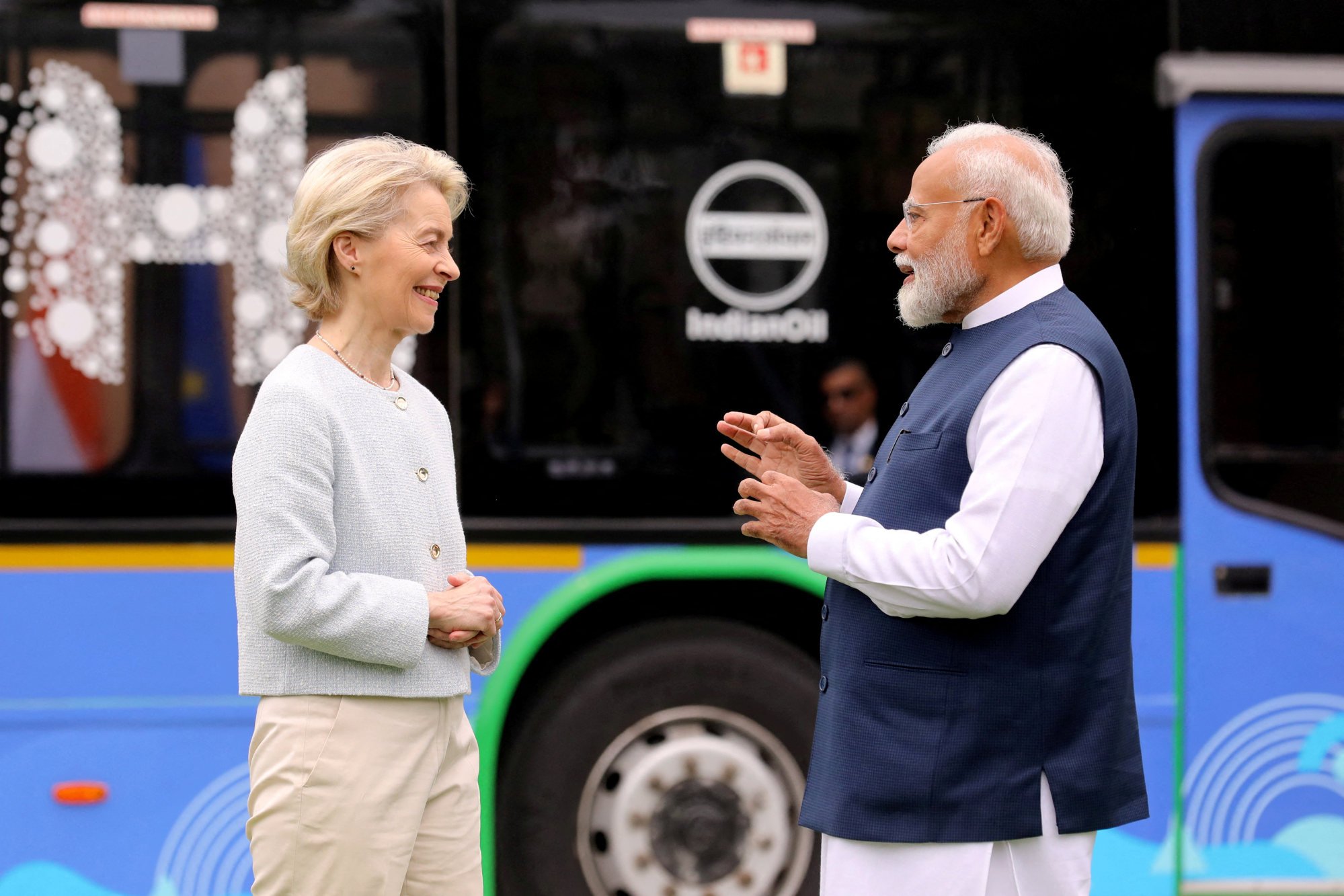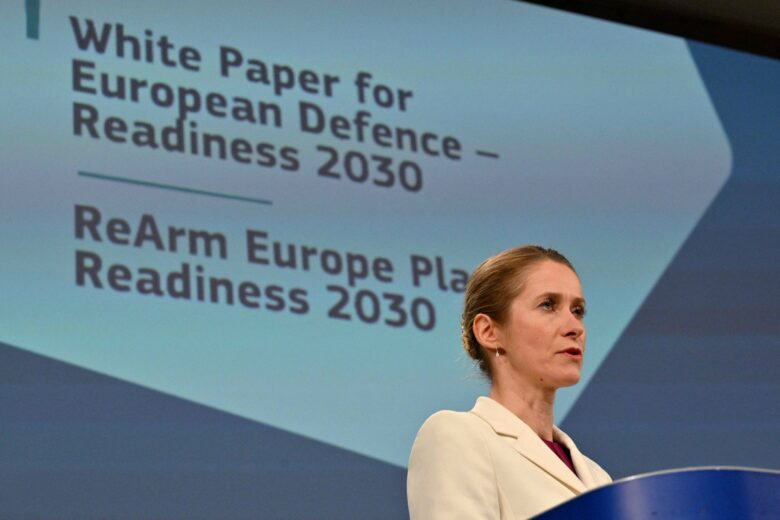The EU must move quickly to engage with China based on European interests instead of defaulting to American positions
In 2025, Europe stands adrift in geopolitical limbo. As Washington sets the tempo and Beijing expands its reach, the
European Union
clings to ambiguity. Brussels’ inability to formulate a coherent China policy has left it vulnerable precisely when autonomy matters most.
Donald Trump’s re-election as US president has shattered Europe’s diplomatic complacency, revealing the cost of years spent deferring to American leadership. Confronted with a combative White House,the EU now needs a functional relationship with China as a counterweight – yet finds itself without the framework to build one. Beijing, meanwhile, watches with
growing impatience
, having expected the EU to meet this moment with determination.
Indeed, three months into Trump’s second term, China still waits for a coordinated EU response to American unilateralism. Instead, it encounters weakness, division and indecision – paralysis rooted not only in Brussels’ approach to Washington, but in its unresolved
posture toward Beijing
.
Do you have questions about the biggest topics and trends from around the world? Get the answers with
SCMP Knowledge
, our new platform of curated content with explainers, FAQs, analyses and infographics brought to you by our award-winning team.
This inertia can be traced back to the bloc’s 2019 strategic outlook. Rather than providing clarity, it institutionalised confusion by labelling China a “cooperation partner”, “negotiating partner”, “economic competitor” and “systemic rival”. What leaders presented as balance came off as an indecisiveness formalised into policy.
In the years that followed, Brussels outsourced its China policy to Washington. Multiple so-called European measures –
5G restrictions
,
semiconductor export bans
or tariffs on
electric vehicles
– often dovetailed with US policy. Europe didn’t lead; the EU merely rebranded American initiatives as its own strategy, mistaking imitation for direction.
The result is the absence of a coherent approach towards one of Europe’s top trading partners. The evidence speaks loudly. Despite repeated threats of tougher measures, the EU recorded a trade deficit of Euro304.5 billion (US$345 billion) with China in 2024, a 4.6 per cent increase over the previous year, while European manufacturers lost market share in China. The gap between EU rhetoric and economic outcomes eroded Brussels’ credibility.
Multiple crises – the
Covid-19 pandemic
, the
war in Ukraine
and supply chain disruptions – exposed the EU’s vulnerabilities yet failed to trigger meaningful correction. Instead, Brussels continued to sidestep difficult choices and default to Washington’s lead. After former US president Joe Biden took office, the EU embraced the ”
systemic rivalry
” line out of routine rather than conviction. This placed transatlantic alignment above strategic interests like securing China’s market access.
Trump 2.0 exposes the emptiness of the EU’s approach by upending its core assumptions. When Washington
shifted its focus from security
to trade, the EU lacked capacity to engage China on its own terms. With no independent framework, Brussels was unable to adapt when American priorities changed. The failure wasn’t just dependence – it was the belief that Biden’s stance could outlast his presidency.
After the EU faced open pressure from the US – including over Trump’s ambition to buy Greenland in 2019 – European Commission President
Ursula von der Leyen
became more hawkish on China. This political miscalculation ignored both European industrial needs and the question of whether Atlantic loyalty would be reciprocated.
A critical moment came in December 2024 when EU top diplomat
Kaja Kallas
branded China as partly “malign” while praising the US as the EU’s “most consequential partner”. In February, her scheduled meeting with US Secretary of State
Marco Rubio
was cancelled after she had already arrived in Washington. The snub exposed how little influence EU leaders hold in the very circles they claim to shape.
This episode illustrates the cost of mistaking alignment for strategy. Brussels has boxed itself in. By lining up too closely with Washington, the EU forfeited its only comparative advantage: the ability to mediate. Now, it faces pressure from both sides, with no credibility to act as an intermediary within the
US-China rivalry
or define an independent role.
Europe’s legitimate concerns about China – trade deficits, closed markets and stiff competition from state-backed firms – have been buried under ideological reflex. Engagement has become an empty ritual of scattered visits and
ceremonial phone calls
.
A lack of strategy has given way to optics. European leaders seem to travel to Beijing with no substantive agenda or deliverables. Spanish Prime Minister
Pedro Sanchez
offered the latest example. His visit yielded few if any tangible benefits.
Just as an Oval Office visit once signalled distinction, trips to Beijing have become vehicles for personal branding, eroding whatever leverage the bloc still holds. With no common line, the EU’s members pursue scattered bilateral deals, deepening fragmentation.
China plays along, yet the lack of substance indicates waning patience. Beijing searches for signs of European agency – and finds none. Tellingly, von der Leyen’s first trip of her new term was to India, not China.

As Trump dismantles the transatlantic consensus, the EU has a chance to assert itself as a global player. That window could rapidly close.
Thus far, Chinese President
Xi Jinping
has positioned himself as one of the few leaders directly confronting Washington. By comparison, the EU seems to be standing on the sidelines. Its absence from where the rules are being rewritten stems not from exclusion but from persistent indecision.
The paralysis reflects more than tactical failure. It exposes a deeper conceptual void: the lack of a serious debate over Europe’s long-term role in a post-American order and the absence of a framework for defining its relationship with China.
If the EU aspires to keep its geopolitical relevance, it must develop a China policy based on European interests – not American defaults. This requires an honest assessment of past failures and the courage to chart an independent course. The alternative is continued marginalisation in a world where influence is earned, not assumed.
More Articles from SCMP
Hong Kong stocks ignore upbeat China GDP data as trade war remains in focus
Trump tariffs may make China’s domestic economy stronger in long run, insider says
ITTF Men’s and Women’s World Cup Macau: Wang Manyu fights back, Wang Chuqin is ‘lucky’
HSBC to offer anti-ageing treatments, medical check-ups at Hong Kong wealth centre
This article originally appeared on the South China Morning Post (www.scmp.com), the leading news media reporting on China and Asia.
Copyright (c) 2025. South China Morning Post Publishers Ltd. All rights reserved.
